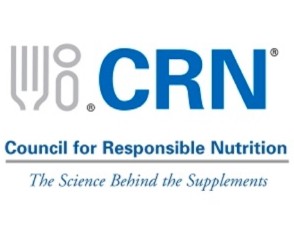CRN’s Mister says study on supplement use in children and teens reveals flaws in peer review process

Steve Mister, president and CEO of the Council for Responsible Nutrition, was reacting to a research letter published with week in JAMA (Journal of the American Medical Association). The article, titled “Prevalence of Dietary Supplement Use in US Children and Adolescents, 2003-2014,” parsed through NHANES data from 2003-2004 and again in the 2013-2014 time frame to measure changes in the usage of these products.
The authors measured the use of dietary supplements, which they characterized as ‘nutritional products,’ which included minerals and vitamins, as well as the growth in use of what they categorized as ‘alternative medicines,’ a heading under which they lumped omega-3s supplements, melatonin sleep aids, and bodybuilding products. They found that about a third of consumers in the under-20 age bracket used supplements.
“I think this research is innocuous in and of itself,” Mister told NutraIngredients-USA. “It simply affirms what we already know, that there is a growing interest in supplements among all age groups.”
Frequent asides reveal bias
But the frequent asides in the research letter are what caught Mister’s attention. The slant the authors, who are associated with the University of Illinois Chicago, put on their research is revealed in their first sentence: “Dietary supplements are often implicated in preventable adverse drug events in children and adolescents.” The authors also implicate common multivitamin ingredients such as iron, calcium and vitamin D with “adverse cardiovascular effects, including arrhythmias, that can lead to sudden cardiac death, a serious yet underreported problem in children and adolescents.”
Where was the review?
Mister said such offhanded comments that permeate the brief publication make him suspicious of the process the letter went through before publication. In his view, the statements made in the letter, which are presented as recognized fact, do not stand up to scrutiny and are not supported even by the citations the authors themselves provide.
“The attempt to turn this into something sinister is an indication that the peer review process at this journal is seriously lacking,” he said.
The authors cite a 2015 research study that purported to link dietary supplement use with an increasing tide of emergency room visits to support the opening statement of the research letter. Mister said that study doesn’t really serve to prove the authors’ point.
“There is an effort to try to implicate the safety of multivitamins with the research they cite about the emergency room visits. But that study showed that they were largely due to a lack of proper supervision,” Mister said.
Source: JAMA Pediatrics
“Prevalence of Dietary Supplement Use in US Children and Adolescents, 2003-2014”
2018 Jun 18. DOI: 10.1001/jamapediatrics.2018.1008. [Epub ahead of print]
Authors: Qato DM, Alexander CG, Guadamuz JS, Lindau ST
















